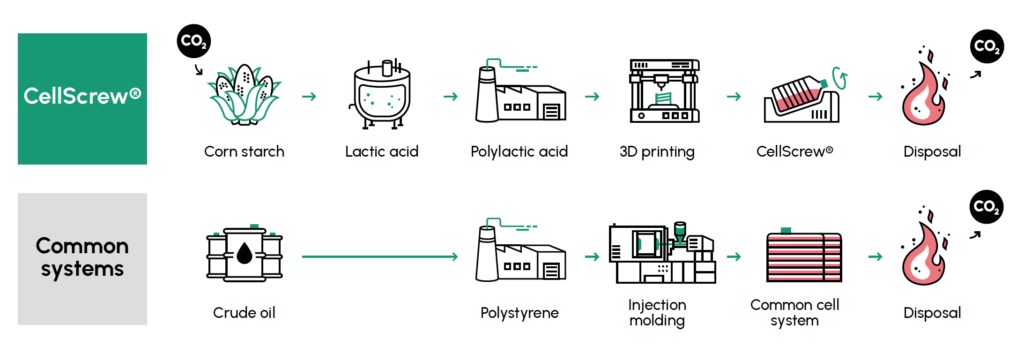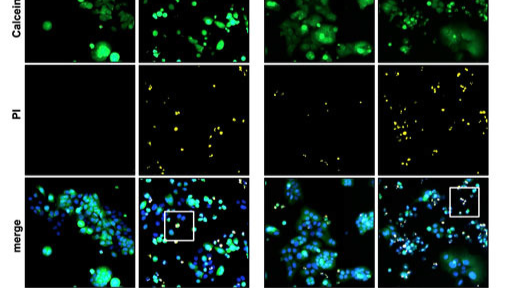BPES will be attending the Industrial Biotechnology Innovation Centre’s (IBioIC) 2023 conference ‘Resilience and the Bioeconomy’. The largest industrial biotechnology conference in the UK, IBioIC’s annual conference draws an increasing number of influential people from academia, industry, government, and business every year.
In the run-up to the event, the team at BPES looks forward to the session on sustainable materials and building a sustainable bio-economy1, as the organisation maintains a particular focus on this area of the circular economy. Sustainable use of resources, waste elimination and pollution minimisation are key aims of a circular economy. An economic model, a circular economy works towards seeing materials and resources recycled and reused for as long as possible, maximising the value and productivity of resources.
FERMENTATION INNOVATIONS
One of the UN’s sustainable development goals requires global food waste to be halved per capita to reduce food losses along production and supply chains by 20302. One of the ways that the circular economy is sustained with that is through fermentation processes. Fermentation is a biochemical process in which bacteria, yeast and other microorganisms break down organic matter and convert it into substances such as alcohols or acids.
The circular economy is supported in a variety of ways by fermentation, such as food waste reduction, energy production and nutrient recycling. This helps to create new value from organic waste materials and closes the loop on resource use and waste generation. Sean Doran, Technical Sales Specialist at BPES UK, spoke of the role of fermentation in the circular economy: “Solutions for everything from pandemics to climate change are being met through fermentation. From cultured meat to life-saving medicines, the future is being produced through sustainable fermentation technologies.”
Biofuels and biochemicals, for instance, are key products of the fermentation process. Renewable biofuels such as ethanol could replace gasoline as a resource for transportation, and fermentation can also be used to produce bioplastics and biodegradable products to potentially replace other petroleum-based products. For example, BPES’ new supplier, GreenElephant Biotech, produce their patented technology, the CellScrew, from polylactic acid (PLA), which is made from a fermented plant starch derived from corn. The sugar in this renewable material is fermented and turned into lactic acid, which is then polymerised into PLA.
Green Elephant claims to have ‘the world’s most sustainable cell culture system made from plant-based PLA’. The GreenElephant adherent CellScrew is 3D printed from sustainable, plant-derived PLA plastics which originate from organic sources such as corn starch. Typical lab ware, on the other hand, is made of polystyrene which comes from non-renewable crude oils. The CellScrew requires between 80-90% less raw material to produce the same amount of growth area as a multi-layer flask.

Another example of how fermentation has revolutionised, simplified and transformed a number of processes involves the production of vitamin B-2. The traditional industrial biotechnology process involved an arduous and costly multi-chemical synthesis and purification process, which has been reduced to a one-step fermentation process whereby a fungi micro-organism transforms vegetable oil into vitamin B-2. This highly efficient process now produces over 1,000 metric tons of the vitamin yearly. Research shows a reduction of CO2 emissions of 30% and a 95% reduction in waste production3.
WASTE STREAM MANAGEMENT
Outside of these key innovations, waste stream management is another crucial factor supporting sustainability goals and promoting the circular economy. About one-third of all food produced goes to waste every year, making food waste a major global issue. Fermentation, for which BPES distributes world-leading products such as Solaris’ Biotech’s bioreactors and fermenters, plays a key role in lowering that number.
Composting is also a popular fermentation method and creates nutrient-rich soil that can be used for agriculture and gardening. Food waste can likewise be converted into biogas through anaerobic digestion, which can be used as a renewable energy source.
A significant amount of agricultural waste is also produced, particularly during the crop production process, and can be repurposed in a variety of ways. One such way is biofuel4, where a harvest’s crop residue is processed through anaerobic digestion to produce alternative renewable fuels5 (animal manure can be utilised similarly). Fertilisers and the production of biomaterials such as bioplastics, biofibres, and biocomposites are two other uses for agricultural waste. Second-generation (advanced) biofuels have a greater potential to reduce GHG emissions, though will take time and significant investment to implement. These advanced biofuels are derived from waste products from agriculture and forestry activities such as rice straw, rice husk, wood chips, and sawdust6.
The wisest course of action for the planet may lie in recycling waste into cutting-edge technology for environmental uses. The solution for reducing the negative effects of the current end-of-life waste management systems is far from simple, however. Both the value and cost of waste management will keep rising globally. Although recycling materials is believed to offer a large potential profit, interest in energy as a recovered commodity is anticipated to decline in the near future. Technology won’t be a barrier to promoting recycling behaviours, but financial factors may be.
Recircle is a UK organisation committed to environmentally friendly solutions for the world’s rubber waste. They have produced an innovative solution for recycling rubber which utilises bacterial fermentation to break down end-of-life rubber materials, such as used automotive tyres.. Recircle works towards helping its customers reduce emissions by using high-quality recycled rubber rather than unsustainable new raw materials. The organisation’s goal is to lessen rubber’s negative environmental effects and end the rubber industry’s destructive loop. For rubber waste, they have created a true circular economy solution.
Solaris Biotech is a leading manufacturer of lab, pilot and industrial-scale bioreactors and fermenters. A company called Bio-on uses Solaris’ fermenters to produce biodegradable polyhydroxyalkanoate (PHA) plastics. Their patented plastic technology, MINERV PHA, is derived from 100% renewable and locally sourced raw material. This raw material is made from beet sugars derived from agricultural waste material and undergoes bacterial fermentation to create PHA. This truly organic plastic has a wide range of applications including packaging, clothing, automotive parts, etc. MINERV PHA increases its biodegradability factor using bacteriological-impure water from sources such as rivers. Biodegradation in natural water sources is the easiest way to destroy and then recover elements. PHAs are also the only plastics that can biodegrade in the ocean. The process of biodegradation is carried out by bacteria colonies that are naturally present in all environments. The microorganisms decompose the material, leaving no trace of it in the environment. The bacteria colonies and their concentrations differ depending on where the biodegradation takes place, taking into account specific temperatures, humidity, pH, oxygen, etc.
To date, a number of novel strategies have been researched to lower the cost of bioprocesses and to increase output yield. Currently, a variety of processes are frequently used for the valorisation of food waste, such as the production of biohydrogen via dark fermentation, the production of biomethane via anaerobic digestion, the co-fermentation of the simultaneous production of biohydrogen and biomethane, and the formation of biofertilizers through composting7.
CONCLUSION
With waste stream management and fermentation key to the closing of the circular economy’s loop, BPES’ role in carefully selecting and promoting world-leading sustainability-focused fermentation products is more crucial than ever. Networking between significant innovators along the fermentation bioprocessing supply lines will bring about a future that meets international sustainability goals. Connecting knowledgeable consumers with market-leading products is a key part of the organisation’s ethos which is focused on a cleaner, greener and safer planet for future generations.
[1] https://ibioicconference.com/agenda
[2] https://sdgs.un.org/2030agenda
[3] ValueofBiotech.pdf
[4] ValueofBiotech.pdf
[5] The use of crop residues for biofuel production – ScienceDirect
[6] https://www.worldcat.org/title/1137604985
[7] https://www.sciencedirect.com/science/article/pii/S2772427122000407






